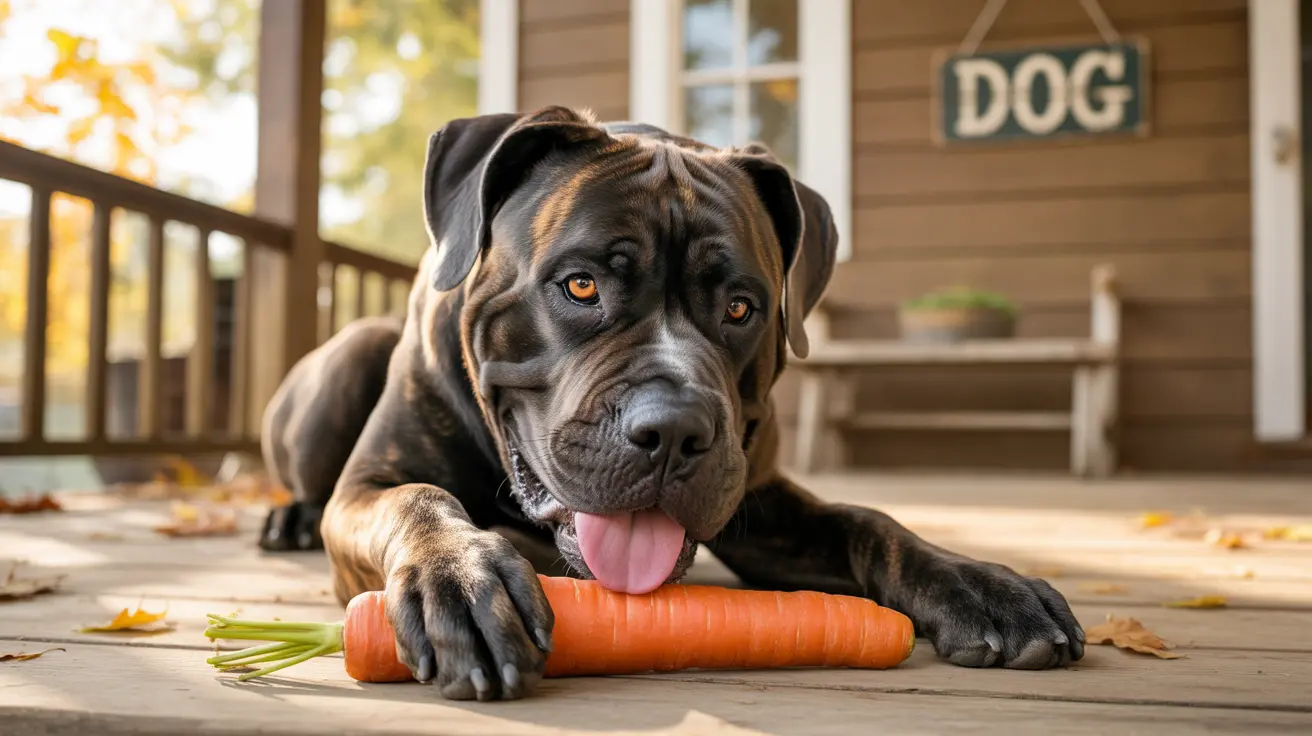If you're wondering whether dogs can safely enjoy raw carrots, the answer is a resounding yes! Raw carrots make an excellent, nutritious treat for dogs when properly prepared and portioned. This comprehensive guide will explore everything you need to know about feeding carrots to your canine companion, from preparation methods to daily serving recommendations.
Not only are carrots safe for dogs to eat raw, but they also offer numerous health benefits, including dental hygiene support, essential vitamins and minerals, and a satisfying crunch that most dogs love. Let's dive into the details of how to safely incorporate this healthy vegetable into your dog's diet.
The Benefits of Feeding Raw Carrots to Dogs
Raw carrots offer several important health advantages for dogs:
- Natural dental cleaning through crunchy texture
- Rich source of beta-carotene (vitamin A)
- High in fiber for digestive health
- Low-calorie treat option
- Excellent source of antioxidants
The crunchy texture of raw carrots can help reduce plaque buildup and promote better oral health, making them a practical addition to your dog's dental care routine. Additionally, the high fiber content supports healthy digestion and can help maintain regular bowel movements.
How Many Carrots Can a Dog Eat Daily?
While carrots are healthy for dogs, portion control is essential. Here's a breakdown of recommended daily serving sizes based on dog size:
- Small dogs (under 20 lbs): 1-2 baby carrots or 2-3 small chunks
- Medium dogs (20-50 lbs): 2-3 baby carrots or 1/4 cup chopped
- Large dogs (over 50 lbs): Up to 4 baby carrots or 1/2 cup chopped
Remember that treats, including carrots, should not exceed 10% of your dog's daily caloric intake. Overfeeding carrots can lead to digestive issues and potentially interfere with the absorption of other nutrients.
Safe Preparation Methods for Raw Carrots
To safely feed raw carrots to your dog:
- Wash thoroughly to remove dirt and pesticides
- Cut into appropriate-sized pieces to prevent choking
- Remove the top and bottom ends
- Consider peeling for easier digestion
- Supervise your dog while eating
For smaller dogs or those prone to gulping their food, grating or finely chopping the carrots can make them safer and easier to digest. Some pet owners also freeze carrot sticks as a cooling treat during hot weather or for teething puppies.
Cooked vs. Raw Carrots for Dogs
While both raw and cooked carrots are safe for dogs, each offers unique benefits. Raw carrots provide better dental benefits and maintain more nutrients, while cooked carrots are easier to digest and may be better for dogs with sensitive stomachs or older dogs with dental issues.
When to Avoid Giving Carrots to Dogs
While carrots are generally safe, there are some situations where you should exercise caution:
- Dogs with diabetes (due to natural sugar content)
- Dogs on specialized diets
- Dogs with certain digestive conditions
- Puppies who haven't mastered chewing solid foods
Frequently Asked Questions
Can dogs safely eat raw carrots, and how should they be prepared to avoid choking?
Yes, dogs can safely eat raw carrots when properly prepared. Always wash thoroughly and cut into appropriately sized pieces based on your dog's size. For small dogs, grate or finely chop the carrots to prevent choking.
How many carrots can a dog eat per day without risking digestive or nutritional issues?
Most dogs can safely consume 2-3 baby carrots or up to 1/2 cup of chopped carrots per day, depending on their size. Stick to the 10% treat rule for daily caloric intake to avoid nutritional imbalances.
Are cooked carrots better than raw carrots for dogs with sensitive stomachs?
Yes, cooked carrots are often better for dogs with sensitive stomachs as they're easier to digest. However, raw carrots offer better dental benefits and maintain more nutrients in their natural state.
What are the key health benefits of feeding carrots to dogs?
Carrots provide vitamin A, fiber, antioxidants, and dental benefits. They support eye health, digestion, immune function, and can help maintain clean teeth through natural chewing action.
Can carrot tops or peels be included in a dog's diet, and how should they be served?
Yes, both carrot tops and peels are safe for dogs when thoroughly washed. Tops should be finely chopped and given in small amounts. Peels can be left on washed carrots but may be removed for easier digestion.
Remember to always introduce new foods gradually and monitor your dog for any adverse reactions. When in doubt, consult with your veterinarian about the best way to incorporate carrots into your dog's diet.






